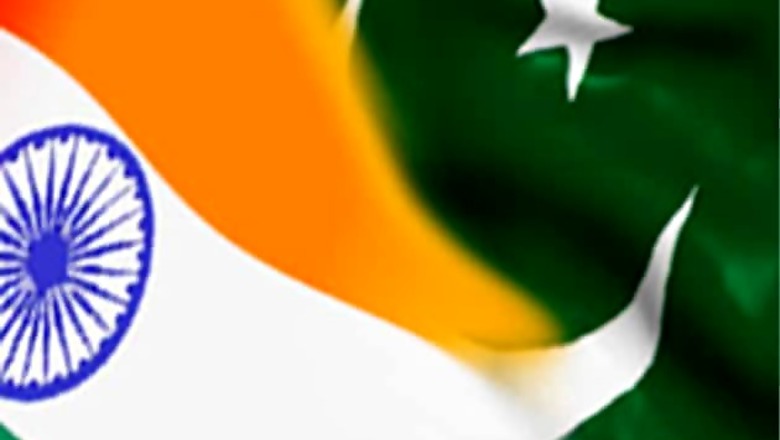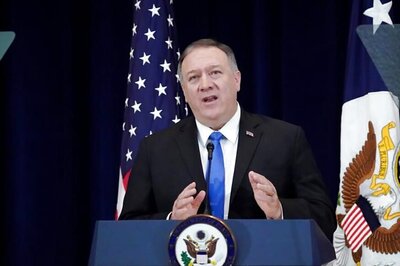
views
'You can fool some of the people all of the time and all of the people some of the time. But you can't fool all of the people all of the time.'
India and Pakistan have always had a love-hate relationship. More hate and less love in recent months. India cancelled the Foreign Secretary talks in August 2014 because the Pakistan High Commissioner had met with separatist leaders. India cancelled the talks with then Foreign Secretary Sujatha Singh calling the Pakistan High Commissioner Abdul Basit, just twenty minutes before his meeting with the Hurriyat leadership. Hurriyat leaders were already at the High Commission's reception and waiting their turn to meet the High Commissioner. Even a large posse of mediapersons were camped outside. That's when Sujatha's call came.
India, it later became clear, did this to convey an unambiguous message to Pakistan that the terms of engagement had changed. India then laid down some basic conditions for the talks to resume.
1. No talking to the separatists
2. Cross border firing must stop
3. Faster and tangible progress on the 26/11 trial.
Now as the new Foreign Secretary S Jaishankar gets set to travel to Islamabad as well as other SAARC capitals, ostensibly to talk cricket, none of these above-mentioned conditions have been met. And they are unlikely to be met anytime soon. Also, Messers Jaishankar and his Pakistani counterpart Aizaz Chaudhary are not going to be talking about the finer points of swing and bounce on Aussie pitches. If the Indian Foreign Secretary being hosted by his Pakistani counterpart in Islamabad is not a resumption of the Indo-Pak talks, then, pray may I ask, what is?
Here's why the talks are resuming and yet India is in the uncomfortable position of couching it behind the façade of cricket. 'Not talking' is not a long-term position. Mature nations realise that suspending talks indefinitely is not tenable. Sooner or later channels of communication have to open or you will be forced to open them. In this case, it was a combination of the two.
President Obama, or 'Barack' as the Prime Minister likes to refer to him, had raised the issue of talking to Pakistan multiple times during his recent India trip. He pointed to the steps that Pakistan had taken to keep Zaki-Ur Rehman Lakhvi in jail. President Obama saw it 'literally as a bending of the law', according to people privy to the discussions. He nudged Modi to see merit in what the Pakistanis were doing after the Peshawar attack. There has been some fairly unprecedented co-operation between Kabul and Islamabad in the aftermath of the December 16th attack. India was wary of this especially since the new Afghan President Ashraf Ghani doesn't seem particularly kicked about India. Certainly not, if you compare him to his predecessor Hamid Karzai. India was wary of losing strategic depth in Afghanistan if there's too much bonhomie between Islamabad and Kabul.
The 'no talks with Pakistan' position also played to a domestic constituency. It suited the BJP to take this position ahead of the Kashmir and Delhi elections. The government didn't want to be seen as being soft on Pakistan, thereby disappointing its core constituency. Now that Delhi has voted so overwhelmingly in favour of Kejriwal, there was no point in hanging on to an untenable and needlessly hawkish position on Pakistan. Also there was pressure from the PDP. Mufti Mohammad Sayeed, who is all set to return as Chief Minister will meet PM Modi next week, where the deal will be officially sealed. The PDP has always been pro-talks. The BJP's latest ally had made it amply clear in private meetings that they would like to see an early resumption of talks.
The Pakistanis are likely to go to town seeing this as a vindication of their stand. They had maintained all along that the onus was on India to resume the talks since it was India that cancelled it in the first place. Now, the Prime Minister has been forced to take the initiative and that too without any of his pre-conditions having been met. These last five months would have hopefully taught the Modi administration a very valuable lesson in diplomacy. When you climb up a diplomatic high horse and don't know how to ride it for long or far, then sooner than later, you are bound to fall. Here's hoping there are no more high horses and red lines. Let's get talking!



















Comments
0 comment